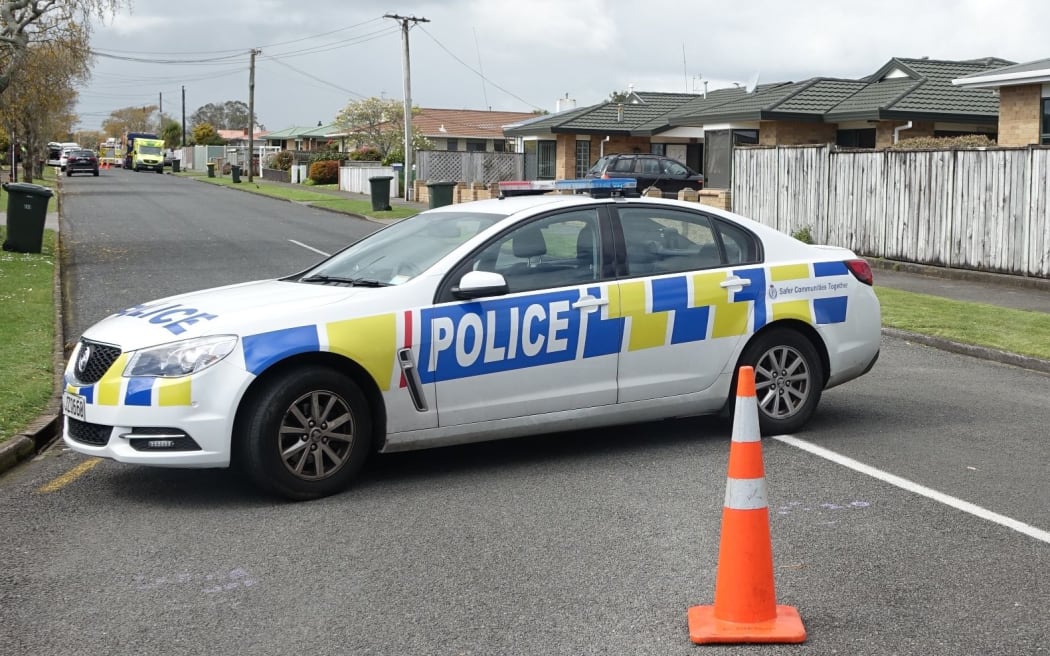The union for police officers says it's "disturbed" by a worrying trend of offenders deliberately ramming police cars.

File photo. Photo: RNZ / Robin Martin
Since the start of the year there have been about nine examples of offenders targeting officers and their cars, the Police Association said.
"When they restarted their now severely damaged patrol car in order to leave the scene and wait for back-up, they were followed by the offender," the association's vice-president Craig Tickelpenny said.
"The offender was eventually tracked down and arrested at a Taupō motel."
Last week a man driving a stolen ute, with a horse float transporting two horses attached, rammed a police car, while earlier in May, a fleeing driver tried to run over two officers twice who were laying road spikes to stop him, Mr Tickelpenny said.
There have also been incidents in New Plymouth, Morrinsville, Tauranga and Auckland.
Police were very concerned by such incidents, which showed "reckless disregard" for the safety of officers and also the public, he said.
"It's also a double-edged sword, with risk to members of the public observing it or being involved in the crash when the vehicles are getting rammed."
A police officer was killed by a fleeing driver in 2008 while laying road spikes in Porirua and, late last year, an officer was hospitalised after being hit while laying road spikes in the eastern Bay of Plenty.
"Ramming police officers and/or their vehicles is only going to increase the severity of the charges against the offending driver," Mr Tickelpenny said.
"Police are under extreme pressure on the frontlines every day. They can do without adding ramming injuries and written-off patrol cars to their list of concerns on the job."
It caused thousands of dollars of damage to patrol cars, he said.
Increasing frontline staff would help discourage reckless behaviour.


